Professor Le Duc To is a meritorious teacher and a leading expert in Vietnam’s oceanography. He is credited with researching and creating important scientific foundations to help the State implement the policies on economic, ecological and tourist conservation and development in the East Sea area of Vietnam.
In 1962, Le Duc To was sent to study oceanography at Leningrad State University by the State. In the summer of 1967, after defending his oceanography-physics thesis, To and some graduates were assigned by Labour Hero, Prof. Buinhiski, and the Academy of Sciences of the Soviet Union to participate in a survey of the Indian Ocean on a marine scientific research ship which was named after academician Kurchatov.
The 3-month trip on the Indian Ocean with the other teachers stirred up To’s ambition to explore and conquer the ocean. In 1967 he returned to Vietnam and worked at Hanoi University (now Vietnam National University) where he was assigned to build up the Meteorology – Oceanography Faculty. In 1970, the Oceanography Faculty was officially established with five officials and To was the first Dean of the faculty.
So far, hundreds of students majoring in oceanography taught by To and his colleagues have graduated. Many of them received his intensive training and become masters, doctors, associate professors and professors. They were appointed to hold important positions at the institutes and agencies related to oceanography in Vietnam.
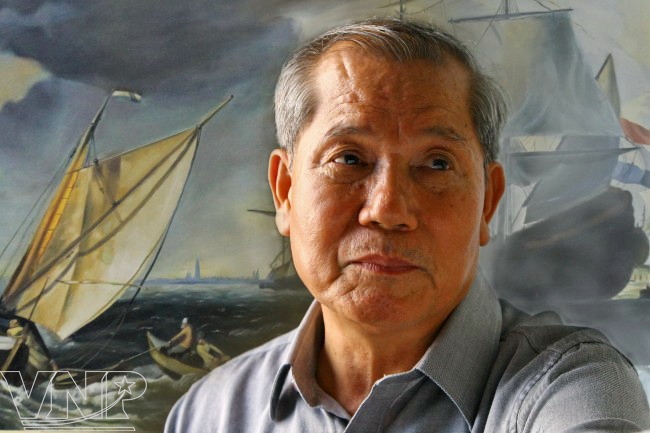
Prof. Le Duc To (March, 2012). Photo: An Thanh Dat
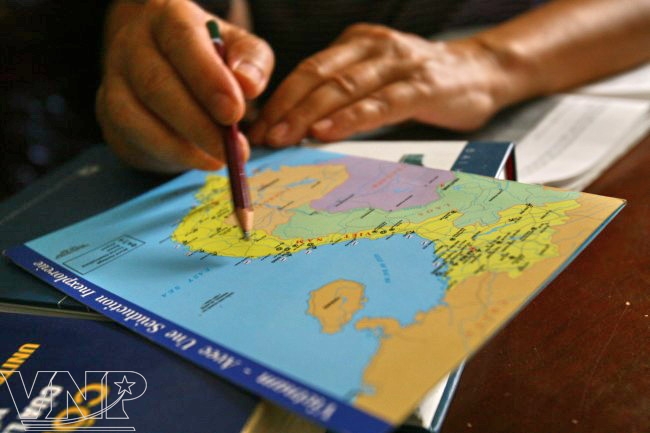
A research project about the ocean by Prof. Le Duc To. Photo: An Thanh Dat
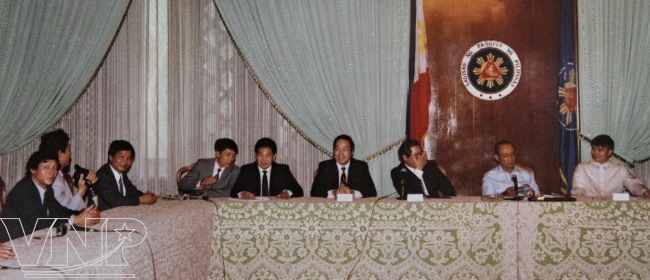
Prof. Le Duc To (2nd from left) at an international seminar about the ocean held in the Philippines. Photo: File
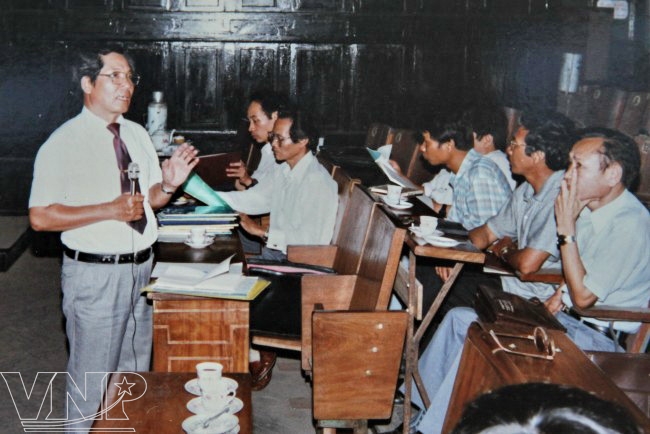
Prof. Le Duc To gives a lecture at an ocean seminar in Hanoi. Photo: File
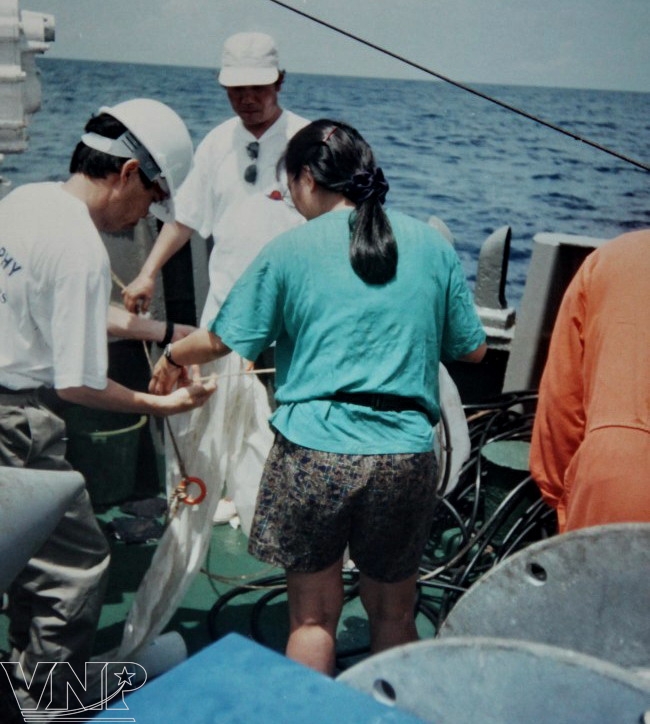
Prof. Le Duc To (middle) during a trip to survey economic potential of the sea in the central region. Photo: File
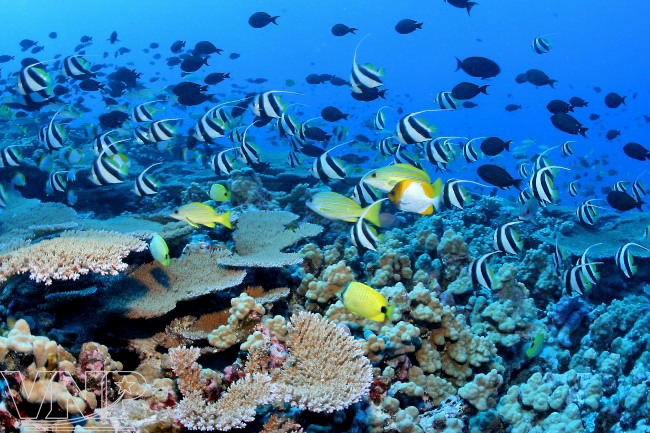
The ecosystem of the sea in Vietnam is To’s top concern. Photo: File |
After Southern Vietnam was liberated in 1975, to meet the requirements on boosting the surveys and research on marine issues for economic development, Prof. Le Duc To and other scientists began to devise programmes of national marine surveys and research and international cooperation. He successfully led the implementation of many State-level scientific research projects, such as the research on the ecosystem of the coastal estuary in Thai Binh, research on the natural conditions and environment along the coastal areas in the coastal provinces in Central Vietnam, forecast of the change in the reserves and output of the fish resources in the southern Central region, and scientific foundations for the economic-ecological development models on the islands. Notably, there were the Vietnam – Russia Co-operation Programme on surveying and researching the coastal waters of Vietnam, and the Vietnam – Philippines Co-operation Programme on surveying and researching the East Sea. These were bilateral co-operation programmes on surveying and researching the East Sea proposed by former President of Vietnam, Le Duc Anh and former President of the Philippines, Phidel Ramos.
From 1991 to 1996, to boost the development of the marine economy, especially mining and fishing, Prof. Le Duc To and the Executive Board of the National Sea Research Programme worked out a research programme on forecasts of the changes in the fish output in the sea area of Vietnam, focusing on the sea area in the southern Central region. Under To’s direction, for the first time, the scientists found the direct relations between the phenomenon of the deep sea water layer coming up to the surface and the formation of the fishing grounds in the southern Central region. The programme also found that the fluctuation of schools of fish depends on the water structure. This is a rather new issue in the marine science of Vietnam and the world.
In addition to the scientific projects in service of fishing, Prof. To has also undertaken a lots of scientific research projects of high practical application. Typical are the economic-ecological model which has been successfully implemented on Ngoc Vung Island in the Gulf of Tonkin, Cu Lao Cham in the Central region and Hon Khoai in the South. The success of these projects has opened a new direction in the economic, ecological and environmental research for the sustainable development of the coastal areas and islands of Vietnam. This is also the way that many scientists are pursuing to develop the sea economy of the country.
After more than 40 years of research, in 2003, Prof. Le Duc To and other Vietnamese scientists published a set of monographs on the East Sea (4 volumes) with thousands of pages. These books are considered a huge scientific project on the sea science of Vietnam.
The name and scientific career of Prof. Le Duc To who has devoted his career to Vietnam’s oceanography for nearly half a century, is known to all Vietnamese oceanographic scientists.
Story: Huu Tuan - Photos: An Thanh Dat - File
Story: Huu Tuan - Photos: An Thanh Dat - File